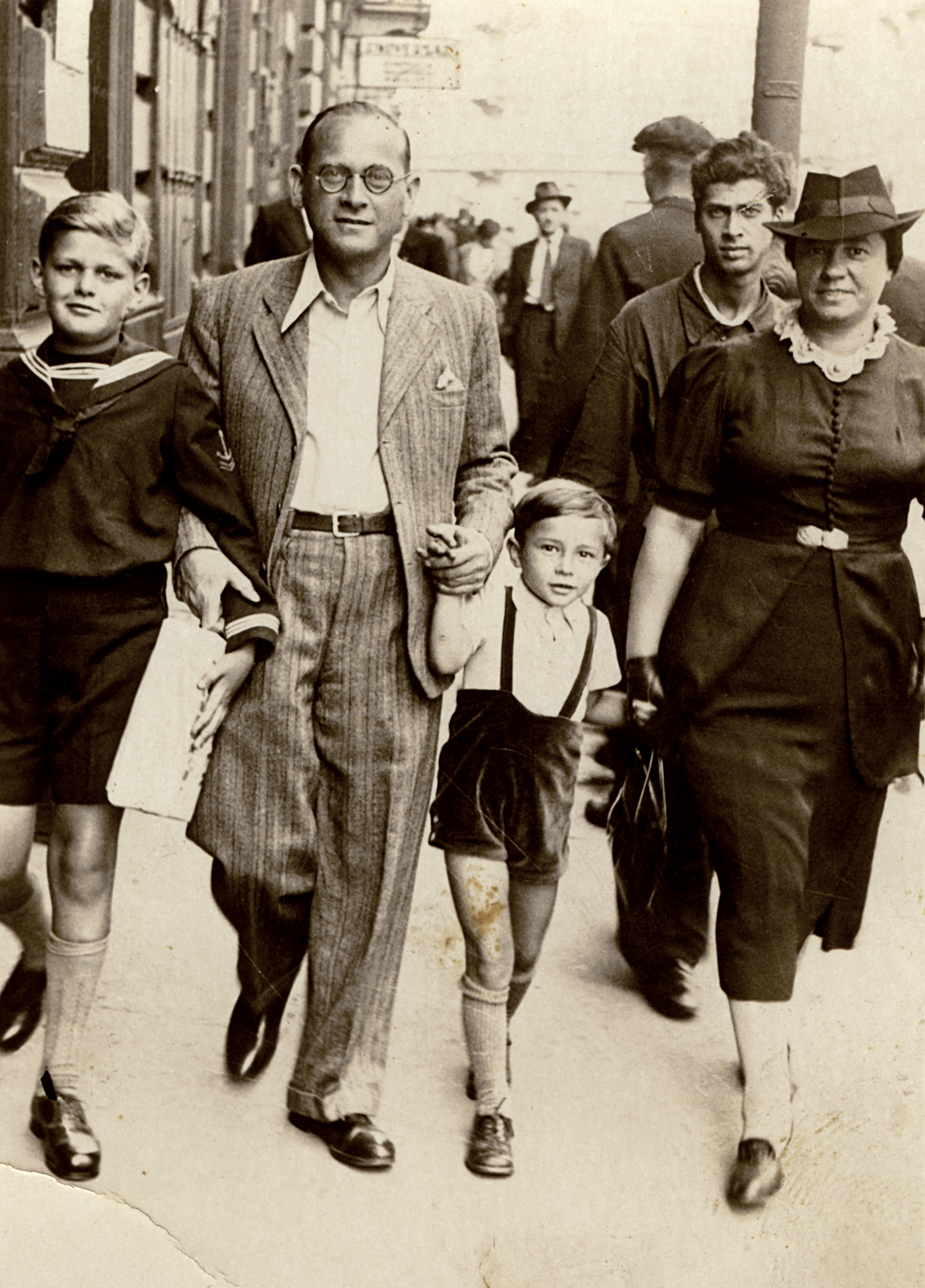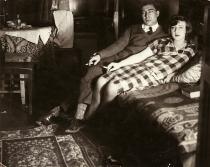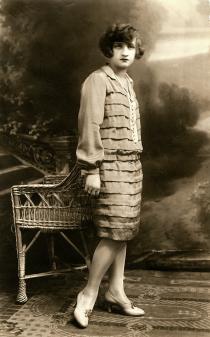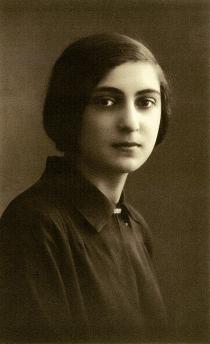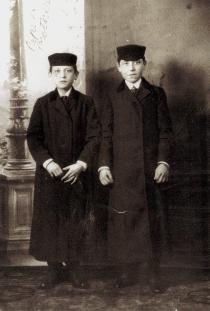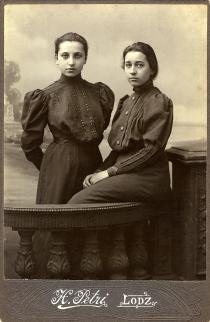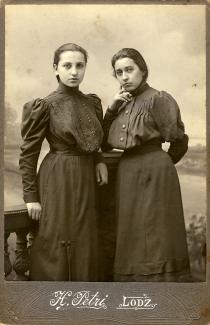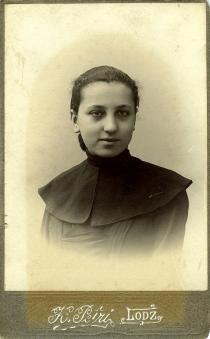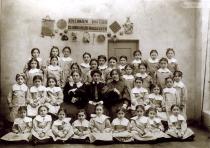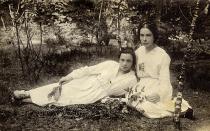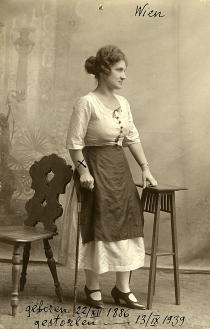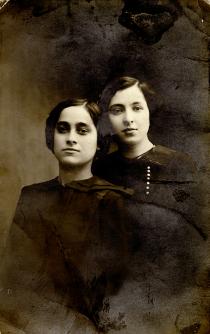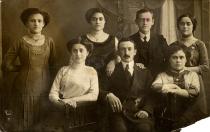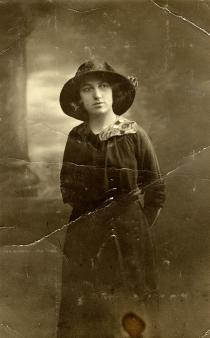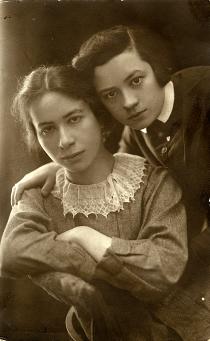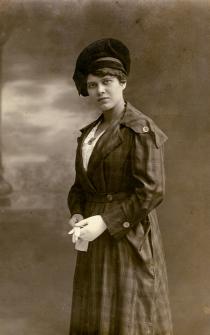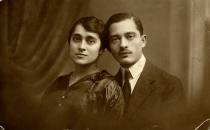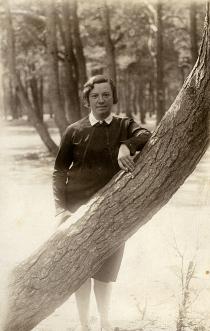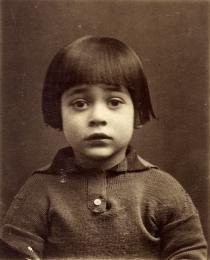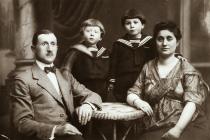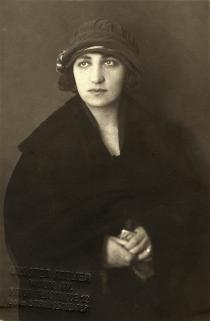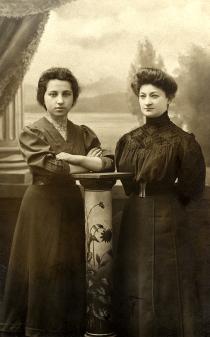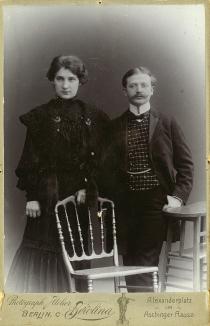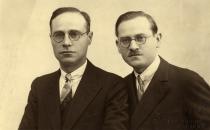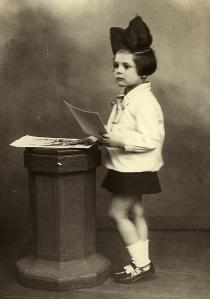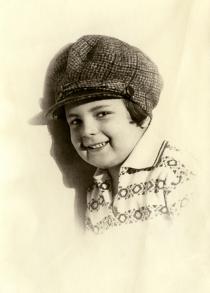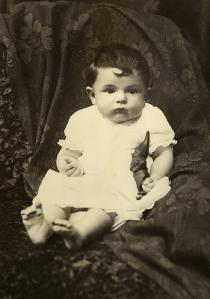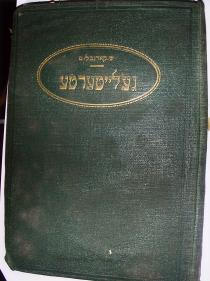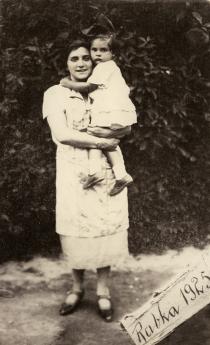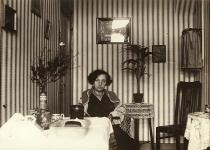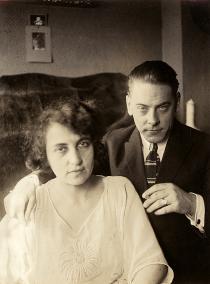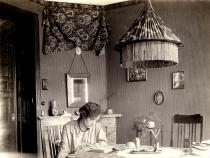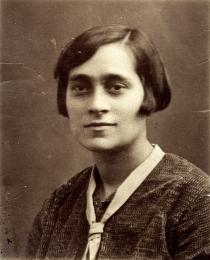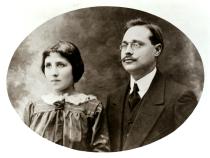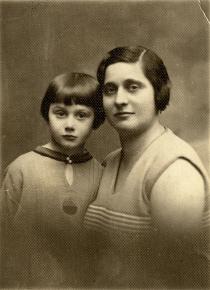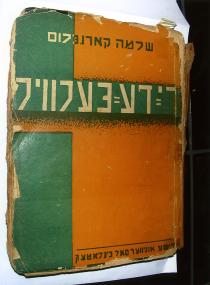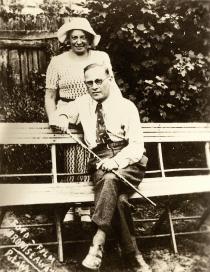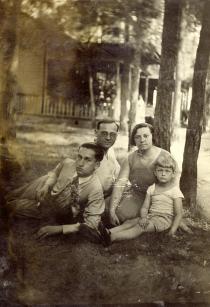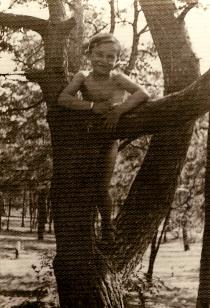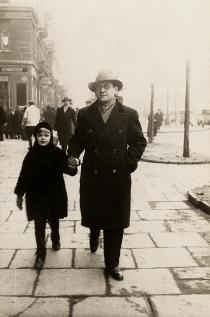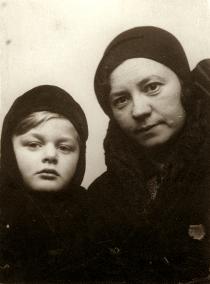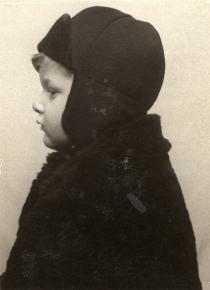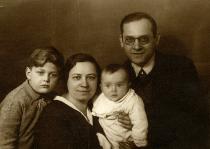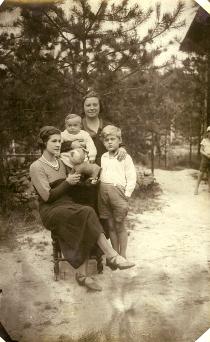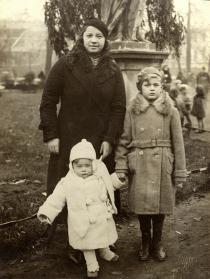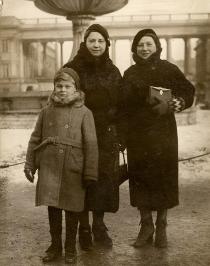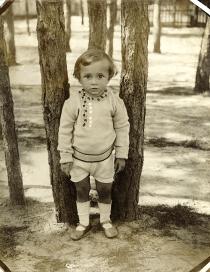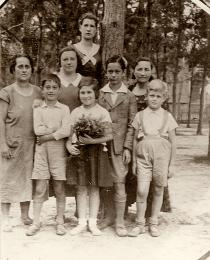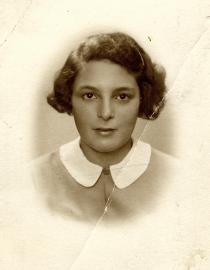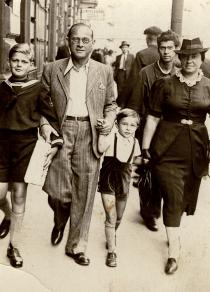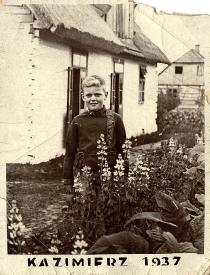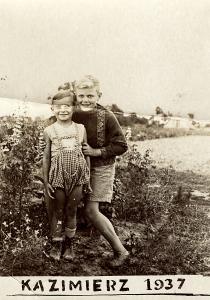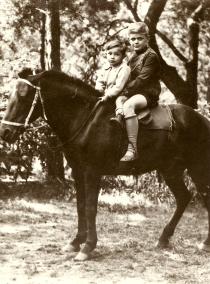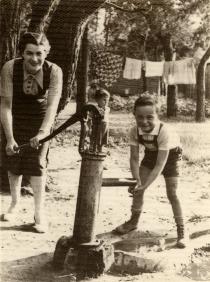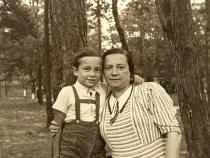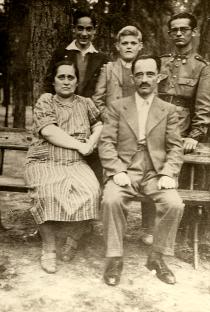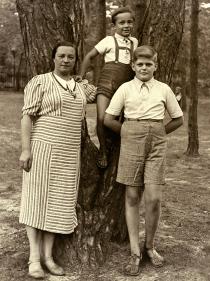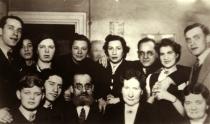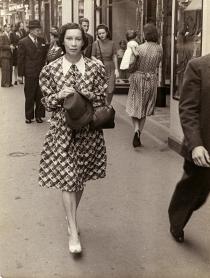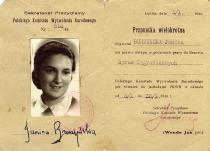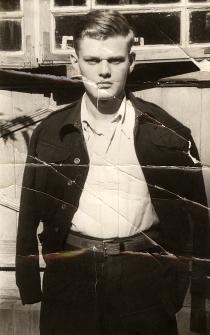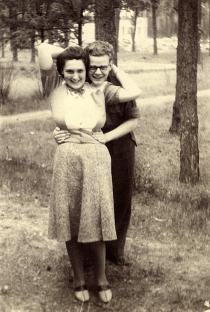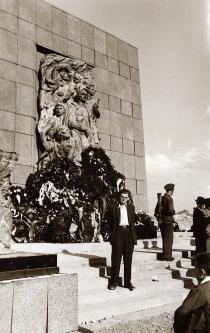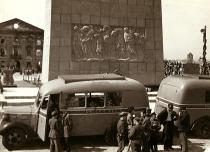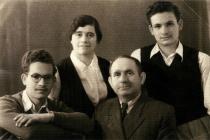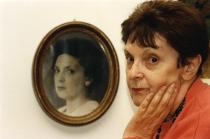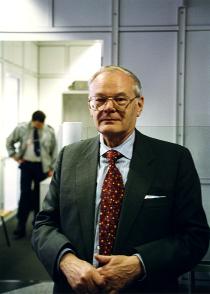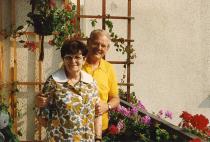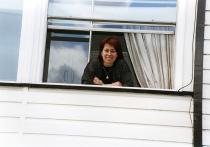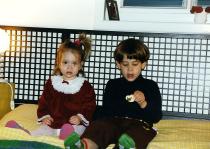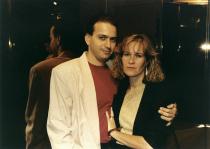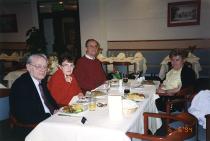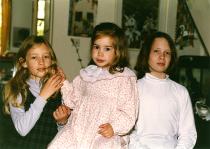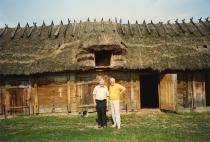That’s me, Dad, my brother Borus, and Mom Lonia, on Wielka Street in 1937. That street does not exist any more. My aunt Frania used to live there. We went to buy me new shoes. I wear those new shoes here and the old ones are in the box. A dedication on the back side ’Fun beyrelen, Izio un unds, oyfn gas’ - ‘From a walk, Izio - that’s me, Izaak - and us’. That was Mom who wrote that in Yiddish.
My mom Lonia - Lea Kornblum - nee Mileband, was born in 1900. Dad got married to Lonia some time around 1929. I don't have information what school she went to, but she was a teacher before she got married, a home room teacher, and she may have also taught Polish at Korczak's, on Krochmalna Street. I knew Lonia wasn't my mom, but I didn't feel it. Mom was a very smart woman. In our house we spoke Polish with Mom, Jewish with dad. Our parents spoke usually Jewish to each other.
Across from our house there was a grocery store, 'at Rudele's'. Rudele was a red-head. It was a Jewish store, you could cut big pats of butter with a wire, like a bow. And we kept going to Rudele's, there were no fridges, you had to buy everything fresh. I liked going there a lot. The smells! Incredible. Next to it there was a soap store, a store with cleaning articles, there was everything, soap, kerosene. A dark store, an older woman stood behind the counter, she must have been very religious. Her sons with sidelocks were there, in caps, that store was connected to their house.
At the corner of Sliska and Komitetowa Streets they used to sell 'baygels', that is bagels, if I remember correctly, 3 for 10 groszy. Today's bagels are not the same thing. Baygels were braided, and the whole thing was to sell them while they were still warm. I know how they made baygels, because later we lived on Niska Street, where Uncle Gefen had a bakery: they made dough, quickly rolled out, the baker braided - two braids, then they threw it on the boiling water, fished it out with a long rod and put into the oven, it sat in the oven briefly and was taken out with a shovel. It was crunchy, brown. I never experienced that taste again.
I walked to Krochmalna, to the shool on foot, it was a long way. On the way, on Prosta Street, there was a navy-blue mounted police station, and I had to stop there, when the gate was open, I could see horses and barns, it was very exciting, but it didn't always work. Sometimes I would meet friends on the way and walk the last parts with them. Always, when we got to Krochmalna, we waited to see cars: Haverbusch and Schiele. On higher numbers of Krochmalna there were brewerie. And that beer in barrels was transported by special cars built in such a way that the barrels stood tilted on those cars, but that wasn't the attraction yet, but the horses that pulled those cars. Those were Percherons, huge, slow, fat, massive horses. And always two or four horses pulled such a car, slowly, and I still remember the clot of their hooves. We used to run there, stay as long as we could, and then back the other way, to school, with our backpacks on. Past Krochmalna, there was a parish on Chlodna Street and there was a theatre next to the parish. And sometimes we'd skip school and go to that theatre for such films: Tom Mix, cowboys, with Indians. On the way back I used to see many porters, and carts on two wheels that they pushed. I think they were Jews, because it was a completely Jewish street, with a bad reputation, because the poorest people lived there, so porters and prostitutes, and thieves.
